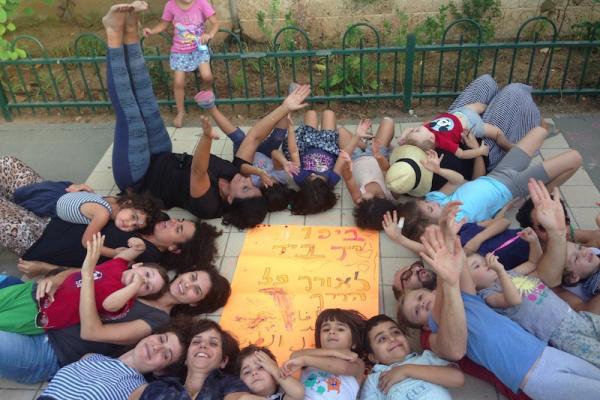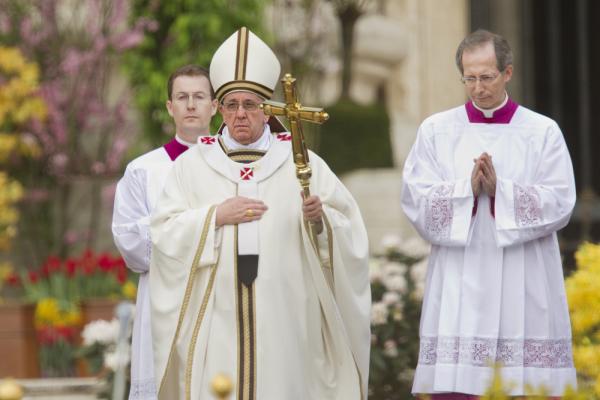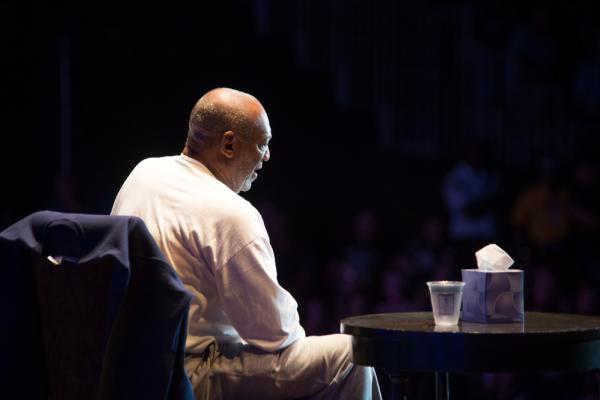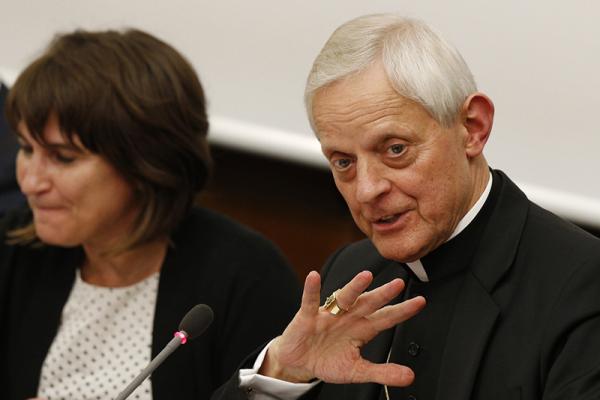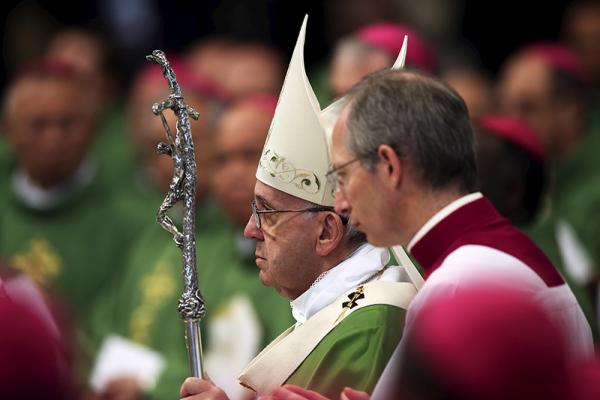Within Christian culture, Christian language is essential and sacred to build each other up and nurture shared space. But as soon as you venture outside of that intimate circle, anywhere you begin to speak in a public sphere, Christian lingo turns into an identity marker, a boundary line that can easily alienate those who perceive you as speaking a foreign language.
I see a lot of shouting Christians, online and elsewhere. I think there’s this prevalent idea that boldly proclaiming one’s faith is a virtue and somehow glorifies God. And while I think it is important for each of us, Christian or not, to claim a right to state our convictions, our best hope of compelling others towards Christ is to stop shouting at them. Remember there are many other languages, and we only earn our right to connect with others when we have learned to respect their values, learn their history, appreciate their culture, and speak their mother tongue.
Amid ongoing violence between Palestinians and Israelis, a school in Jaffa seems more determined than ever to teach Arab and Jewish children about coexistence.
In a sunny playground here just 3 miles south of Tel Aviv, children paint recycled tires in vibrant colors and refurbish wooden furniture to beautify a place that many in the community say is their best chance at a peaceful future.
This is the Jaffa branch of “Yad b’Yad” — or “Hand in Hand” in both Hebrew and Arabic — a school made up of four kindergarten and two first-grade classes that aims to respond to growing Jewish-Arab segregation and violence with mutual respect and open dialogue.
“Psychologically, this is the only place where we feel that my children, and my neighbor’s children, are secure,” said Hani Chamy, an Arab engineer and generations-old resident of Jaffa who was one of the first parents to send her two girls to the pre-school.
“It’s a great relief.”
When we saw these Bad Lip Readings of the first presidential debates, we couldn’t suppress our laughter from our supervisors. So we decided to share the goodness with you, our Sojourners-reading, social justice-loving audience. What does this have to do with putting our faith in action for social justice? Well, as Aslan tells the creatures of Narnia, “For jokes as well as justice come in with speech.”
The Vatican announced Oct. 28 that Pope Francis will issue a document about the family as a follow up to the recently-concluded Synod on the Family, according to America magazine.
The Synod on the Family, a meeting of 270 bishops which discussed, among other things, communion for divorced and remarried Catholics and pastoral approaches to the LGBT population, lasted three weeks and ended Oct. 25. Pope Francis will release an “apostolic exhortation,” a type of papal document commonly released after a synod, which is one step down in authority from an authoritative papal encyclical. “Laudato Si,” Pope Francis’ recent writing on the environment, was an encyclical.
As sexual assault on college campuses became a national conversation in the U.S., dozens of women came forward with stories that Bill Cosby sexually assaulted them — and in many cases, that he drugged and raped them.
In response, some colleges that awarded Cosby an honorary degree have rescinded the award. Fordham and Marquette were the first two to do it, but with Springfield College’s recent announcement this week that it was revoking the comedian’s honorary degree, that number has grown to 12.
Still, a majority of the schools that awarded him a degree — at least 60 — have not revoked the honor. Vulture contacted more than 40 of these schools and listed their responses on their site. Some colleges replied that they were currently having discussions about the matter, while others made statements similar to George Washington University’s:
“It has never been the university’s practice to rescind an honorary degree.”
South Carolina sheriff Leon Lott announced Wednesday afternoon that Ben Fields, the police officer who violently arrested a 15-year-old black female student at Spring Valley High School, has been fired.
"It's not what I expect from my deputies, and it's not what I tolerate from my deputies," said Lott.
Although Lott removed Fields from his police force, he also commented on the behavior of the student.
The poetic prayers, songs, and laments of the book of Psalms were recorded to teach worshipers how to praise God, as well as to lament and grieve. When undergoing times of agony or when words are not enough, the Psalms can express the painful emotions for us, as processing emotion helps us to move forward with difficult choices.
Much of the Psalms were attributed to David, including the prayer of Psalm 55—a lament about suffering violence at the hands of a loved one. Many victims of abuse find themselves alone and abandoned by family and friends who become impatient and exasperated by their ongoing struggle with loving their abuser. Praying through a Psalm may be an emotional refuge during such a painful time.
Oct. 28 is the third debate for the Republicans, and since their last stage appearance, several have been ringing the religious liberty bell from one primary state to the next.
CNBC, which is hosting this debate, says the focus will be on economic issues when the mikes turn on at Coors Events Center at the University of Colorado in Boulder.
But that doesn’t mean God talk will be muted. Didn’t Pope Francis just sweep through, telling U.S. leaders about the moral dimensions of public policy?
“The frame of reference is now going to be: ‘What does the gospel really say here?’ That’s our first task.”
That’s Washington Cardinal Donald Wuerl summing up the new course for Catholicism set by the momentous Vatican meeting of 270 bishops from around the world that concluded last weekend, a three-week marathon in which he played a key role.
After often contentious talks on whether to adapt the church’s approach to issues such as divorce and cohabitation, the high-level synod succeeded in giving Pope Francis a document that offers him significant new flexibility in shaping more pastoral policies.
Pope Francis named two new archbishops in Italy on Oct. 27, seen as strategic appointments for the pontiff’s push to create a “poor church.”
Matteo Maria Zuppi will leave his position as an auxiliary bishop of Rome to take up his new post in Bologna, in central Italy. And Corrado Lorefice, a parish priest in the Sicilian city of Noto, has been named archbishop of Palermo.
Both are relatively young to receive such high office; Zuppi turned 60 this month, while Lorefice has just celebrated his 53rd birthday. But more importantly, the new archbishops have adhered to the pontiff’s wish to prioritize caring for the poor.

